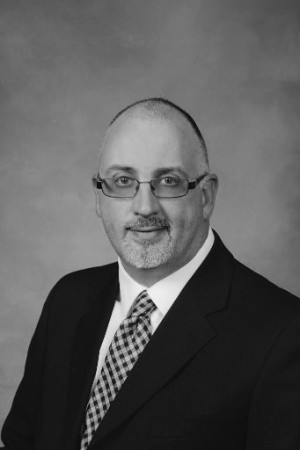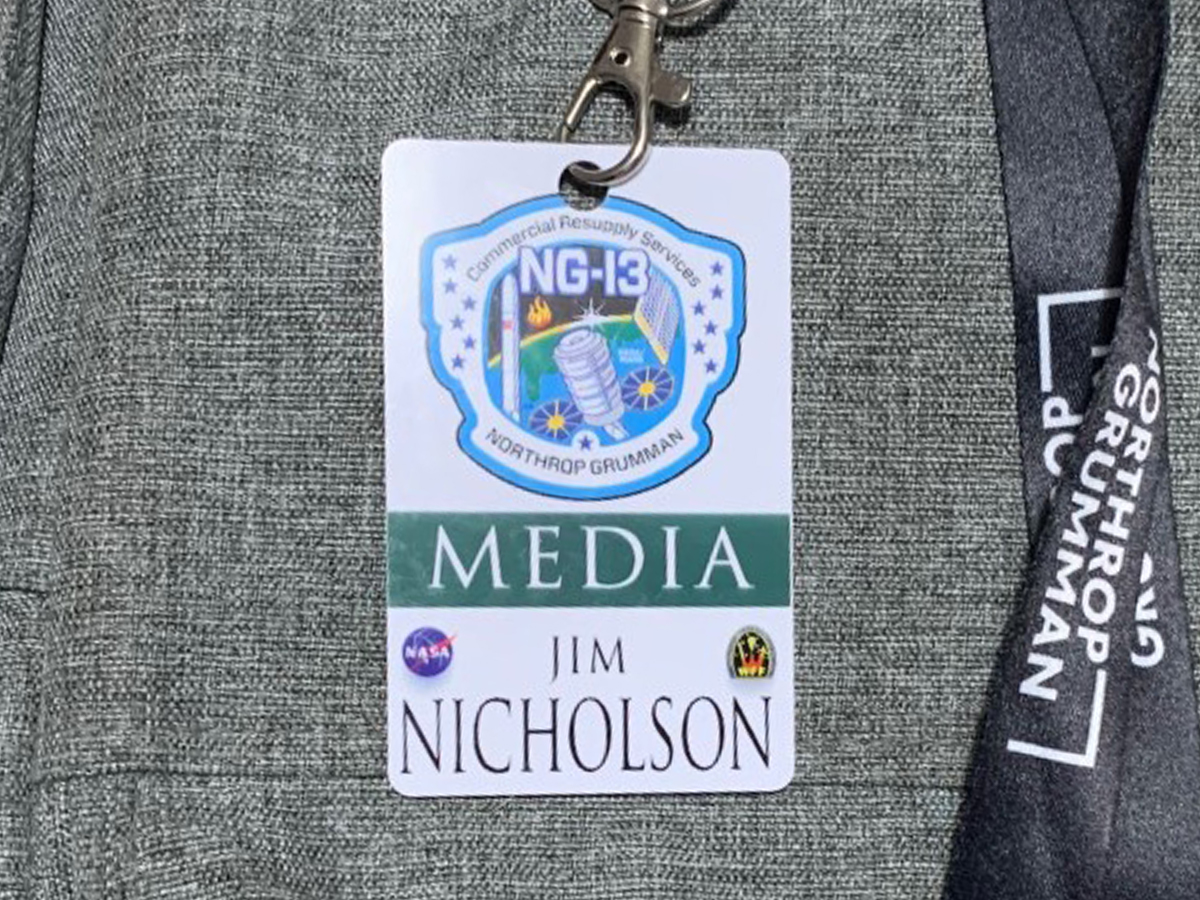Let’s say you have a passion for writing, videography, podcasting, or blogging, but realize that merely reporting events you’ve attended isn’t giving more information to your audience than they would have if they attended themselves. You want to see, hear, and experience more. How do you get a backstage pass to speak to the people who are on the stage and behind the scenes?
You need press credentials. Credentialing is vital to anyone seeking to report on events with more than the public perspective. Getting credentialed for an event is a gateway to better-informed writing and reporting, but it’s not always easy. The space for people covering an event is limited and those awarding credentials are keenly aware of that. However, giving members of the media access is inexpensive publicity for the event and the event planners are even more keenly aware of that.
Having always been fascinated with the space program, I wanted to get credentialed when I learned there was a launch facility just a few hours’ drive south, with an upcoming mission in November of 2019 to resupply the International Space Station. I leapt at the chance to cover the event, and here’s what I learned that can help you get credentialed and make the most of events you want to write about.
Find A Sponsor
You have to convince the communications or public affairs director of the event that you’re worth giving press credentials to and the very best way to do that is to have a sponsoring publication. This means reaching out to organizations that might be interested in publishing an article or some reporting you do at the event. Once your pitch is accepted, you can then truthfully present yourself as a writer for an established publication when you apply for credentials.
Even without a sponsoring publication, if you write for your own website that has an audience, you can still persuade someone with the authority to give you credentials. If you establish that the work you produce will capture eyes and raise awareness, then you have a shot at getting credentialed.
Know Your Sponsor’s Audience
Know or learn your audience. For something as specific as a launch, online science and tech sites might be looking for something about an event they’re not actively covering, and you could get freelance work there. Finding another angle is also helpful; for example, project management, science, or engineering publications that deal with education might also be interested in this case. Be creative when considering what publications to approach. Generating content can be exhausting and expensive for a publication to do with a staff of writers, which gives you a chance. Publications almost always have a contact us feature on their website and it never hurts to ask.
Connect with the Organization Running the Event
You should also contact the organization sponsoring the event. In this case, it was Wallops Launch facility.
I spoke to Keith Koelher, a public affairs specialist at NASA Wallops flight facility and asked him what he was looking for to credential freelance writers, bloggers, podcasters or other media to get a coveted behind-the-scenes peek and the opportunity to ask questions before and during a launch: “You have to show you’re going to produce something on a media outlet, online or other.”
Never Miss an Opportunity for Experience
If you don’t have a lot of experience, get some. Attend an event publicly and talk to the men and women organizing it; if you’re polite and curious, you’ll find them very receptive and eager to answer appropriate questions. In my case, I had already written for a business technology and strategy blog, so I had an existing body of work to refer to when I contacted Mr. Koehler. Later, I pitched this article about getting credentialed to Write Now Philly. Make it a rule to never miss an opportunity to turn your experience into something you can share if you can get some writing done in the process.
Be Respectful
After getting approved, the work has just begun. How you present yourself is essential to making helpful connections and getting credentialed again. When I got credentials for the launch, I hardly knew what to expect. I was unfamiliar with who I’d meet and what I’d see, but here are a couple of easy guidelines for how to act:
Be respectful of the other credentialed people there. Like you, they’re on the job and they have questions of their own and probably won’t have the time to help you if you’re not sure how to proceed.
If you have a guide, listen to every word he or she says. Someone will certainly be there to make sure you don’t wander off course to interfere with the time-sensitive or dangerous work being done. Ours had a colorful warning: “If you hear me say, ‘GET BACK TO THE BUS’ then that means ‘GET BACK TO THE BUS’. Don’t take a moment for your Pulitzer-prize winning shot or whatever. We will recover your camera equipment. We don’t want to have to recover you!” That was the first time it struck me that I was about to watch a very complicated bomb throw four tons of space gear at a moving bullseye 400 kilometers into space.
Ask Questions and Network
Find out who you’re likely to meet and ask questions. The experts are there to sell their event’s success and you’re helping them do their job. This will also be a chance to meet with others at different levels. Depending on the event, there might be people there willing to talk to you about what they’re doing as members of the media. I had the chance to speak to a group from “We Report Space” and spoke at length with a photographer named Scott Shilke about the importance of raising awareness of the almost-commonplace launches. “We can’t let people forget this kind of thing is happening all the time,” he told me enthusiastically.
Research
Do your homework. I was only modestly aware of what was going up on the mission in November, so I was flummoxed when I met with one of the project leaders, Major Michael Felten, who told me about the Cubesat initiative to make discovery accessible to science programs with smaller groups with a limited budget by packaging dozens of very small experiences in containers the size of a shoebox. They even sent a specialized experimental baking oven to make life in an extreme environment just a little better (they had fresh baked oatmeal space cookies for Christmas).
Benefits
Whatever your passion—film, television, theater, music, tech, business, or politics—getting credentials gives you a foot in the door to observe and connect with people doing the work you want to write about. You’ll meet with industry experts and peers to learn more. You’ll ultimately tell a better story, get more information, and better engage and inspire your audience. Getting press credentials is a big step toward a career in any kind of media.

James W Nicholson has been writing professionally for nearly a decade and his work has appeared in DZone and Quickbase. He has a MS from Neumann University in Strategic Leadership and lives in the burbs of Philly.
